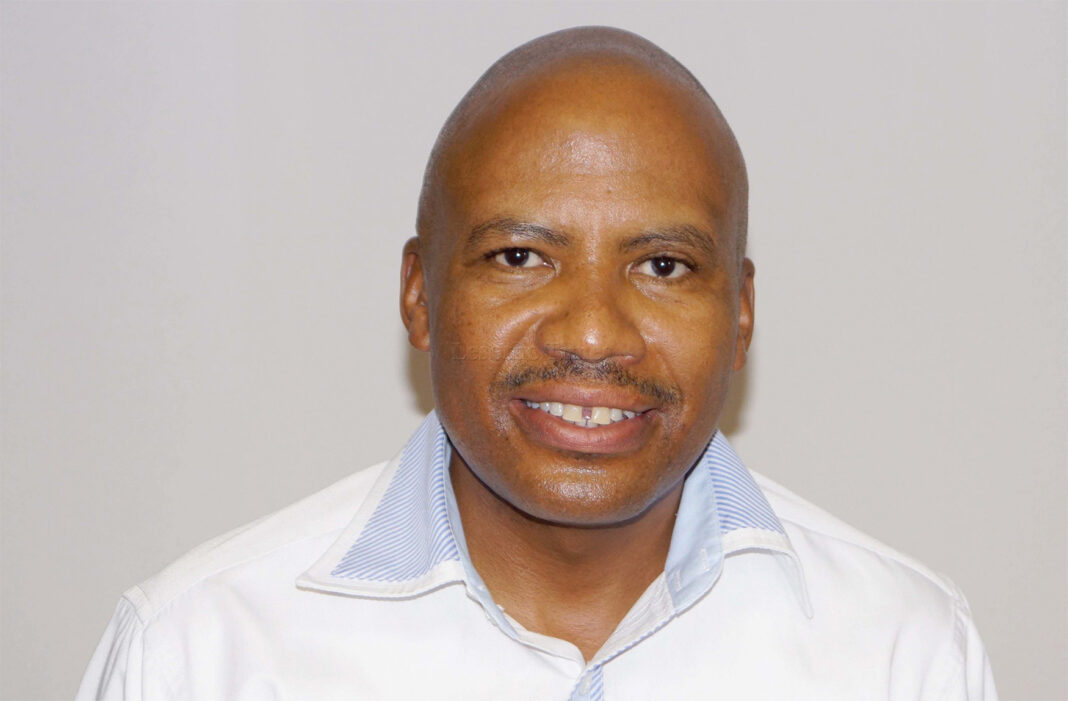By ‘Majirata Latela
The Covid-19 pandemic has not only affected livelihoods and killed many people, but has also affected big projects that countries had already planned on embarking on. The construction of the Polihali Dam which is part of Phase II of the Lesotho Highlands Water Supply Project is also not immune to the effects of Covid1-9 and the lockdowns that have been imposed.
theReporter’s ‘Majirata Latela engaged LHDA Chief Executive, Tente Tente who explained how the construction of Polihali has been affected by the pandemic.
ML: In the LHDA Phase II Talk, you have indicated that ‘Momentum on the implementation of the water transfer component of Phase II of the Lesotho Highlands Water Project (LHWP) picked up in the second half of the year, following a slow start as a result of COVID-19 restrictions’. Please explain what you mean by a slow start.
TT: The hard lockdown started at the end of March 2020. Immediately following the relaxation of this first hard lockdown in May 2020, construction activities on Phase II remained suspended to enable preparations for implementation of Covid-19 mitigation measures on all sites to ensure that the work areas were safe for the return of workers. In addition, strategies were introduced to limit the number of workers on site at a given period. As a result, there was initially slow progress was registered against the expected planned progress. The pace of activity had picked up while still observing Covid-19 restrictions.
ML: How far is LHDA with online procuring as indicated in the report that it will help address the challenges of Covid-19?
TT: The advent of Covid-19 has affected routine activities that previously required physical or close contact with each other. We have all had to adjust to new ways of conducting business while being separated from each other. Before the onset of the pandemic, our procurement processes required in-person participation in tender briefings, whereby prospective bidders would have to physically attend briefings or visit our sites, as well as make paper submissions to us. Our global new normal has presented us with an opportunity to streamline our processes, while maintaining our unwavering commitment to transparency and fairness. These new systems will also make it easier for you to do business with us.
Implementation of an eProcurement system is now essentially complete. Final testing is underway to ensure a user friendly and secure interface. We look forward to introducing them to you in the very near future.
ML: ‘Construction activity resumed under stringent COVID-19 safety protocols, which are intended to protect the project workers and communities in the project area after the partial relaxation of the national restrictions in May 2020’. What are the safety protocols that you have put in place to ensure that workers do not get infected with the virus?
TT: The safety protocols in place on all construction sites as per the LHWP Covid-19 Mitigation Guidelines include:
- COVID-19 response training for personnel.
- Strict access control measures, including recording personal details of all people entering LHWP II sites and body temperature measurement.
- Screening, testing and compulsory quarantine of all those coming back to site from COVID-19 hot spots.
- Limiting entry of visitors and non-essential personnel to construction sites.
- Installation of sanitizer and hand washing points at strategic points on sites.
- Regular and thorough disinfecting/cleaning of the workplace, ablution facilities and eating areas.
- Reducing the number of workers sharing accommodation facilities.
- Setting facilities aside exclusively for self-isolation.
- Compulsory wearing of face masks by all project staff.
- Limiting community meetings but where necessary, ensuring social distancing and the wearing of face masks.
- Holding virtual meetings for project stakeholders.
- Setting up a mini-clinic for screening and rapid response for suspects.
ML: How has resettlement been affected by Covid-19 and the lockdown that has been enforced?
TT: The resettlement consultants implemented strict safety protocols in line with the National Public Health (COVID-19) Regulations of 2021, as well as the LHWP Covid-19 Guidelines, in order to continue with their work during the lockdown. Activities such as consultations with the affected households to be relocated for the Advance Infrastructure components (roads, camps, power line, telecommunication system, etc.), asset registration within the dam basin and resettlement planning for all affected households were able to continue.









